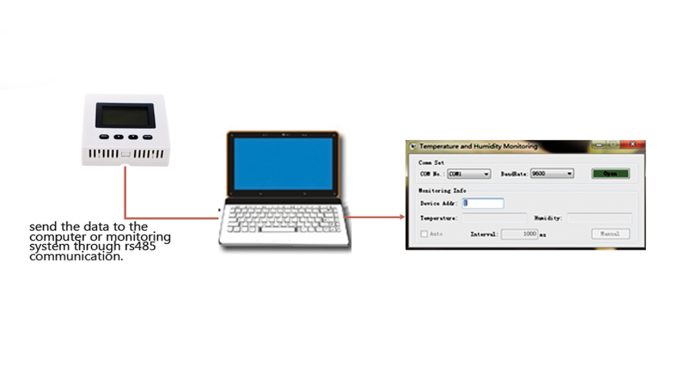Humidity refers to the amount of moisture present in the air. It is usually expressed as a percentage and is a critical parameter that influences the overall atmosphere of a space. A Humidity Controller is an indispensable device that plays a crucial role in maintaining optimal humidity levels in various environments. Whether in industrial settings, greenhouses, homes, or laboratories, these controllers ensure that humidity remains within the desired range, providing numerous benefits such as improved comfort, preservation of materials, and enhanced productivity.
Importance of Controlling Humidity
Maintaining the appropriate humidity levels is of paramount importance in various settings, as it significantly impacts the overall well-being of both living organisms and materials. Whether it’s a small, enclosed space like a home or a large-scale industrial facility, controlling humidity offers numerous benefits and ensures optimal conditions for various applications.
Health and Comfort
One of the most immediate and noticeable effects of humidity is on human health and comfort. In indoor environments, especially during extreme weather conditions, improper humidity levels can lead to discomfort, dehydration, and potential health issues. When the air is too dry, people may experience dry skin, irritated eyes, and respiratory problems. Conversely, high humidity levels can create a muggy and oppressive atmosphere, making it difficult to breathe and increasing the risk of heat-related illnesses.
Preservation of Materials
Humidity control plays a crucial role in preserving various materials, including delicate items, historical artifacts, and industrial products. In museums, archives, and libraries, maintaining stable humidity levels is essential to protect valuable paintings, documents, and books from deterioration, fading, and mold growth. In industrial applications, materials like wood, paper, and textiles are susceptible to damage in environments with fluctuating humidity.
Industrial Processes
In industrial and manufacturing settings, precise humidity control is critical for consistent product quality and production efficiency. Certain industrial processes require specific humidity levels to ensure that products are manufactured under optimal conditions. For example, in the pharmaceutical industry, controlling humidity during the production and storage of drugs is crucial to maintaining their stability and efficacy.
Agricultural and Horticultural Applications
Humidity control is essential in agriculture and horticulture to create favorable conditions for plant growth. Greenhouses and indoor farms often rely on humidity controllers to maintain the ideal environment for crops, ensuring proper transpiration and preventing diseases caused by excessive moisture. By regulating humidity, farmers and horticulturists can optimize crop yields, quality, and overall productivity.
Electronics and Data Centers
Electronics are highly sensitive to environmental conditions, including humidity. High humidity can lead to condensation and moisture-related damage to electronic components, potentially causing costly equipment failures and downtime. In data centers and server rooms, precise humidity control is essential to maintain the performance and reliability of servers and other critical IT infrastructure.
Conclusion
The importance of humidity control cannot be overstated, as it profoundly influences human comfort, material preservation, industrial processes, agriculture, electronics, and scientific research. Whether in residential, commercial, or specialized environments, maintaining optimal humidity levels is key to ensuring a healthier, more efficient, and productive space.














